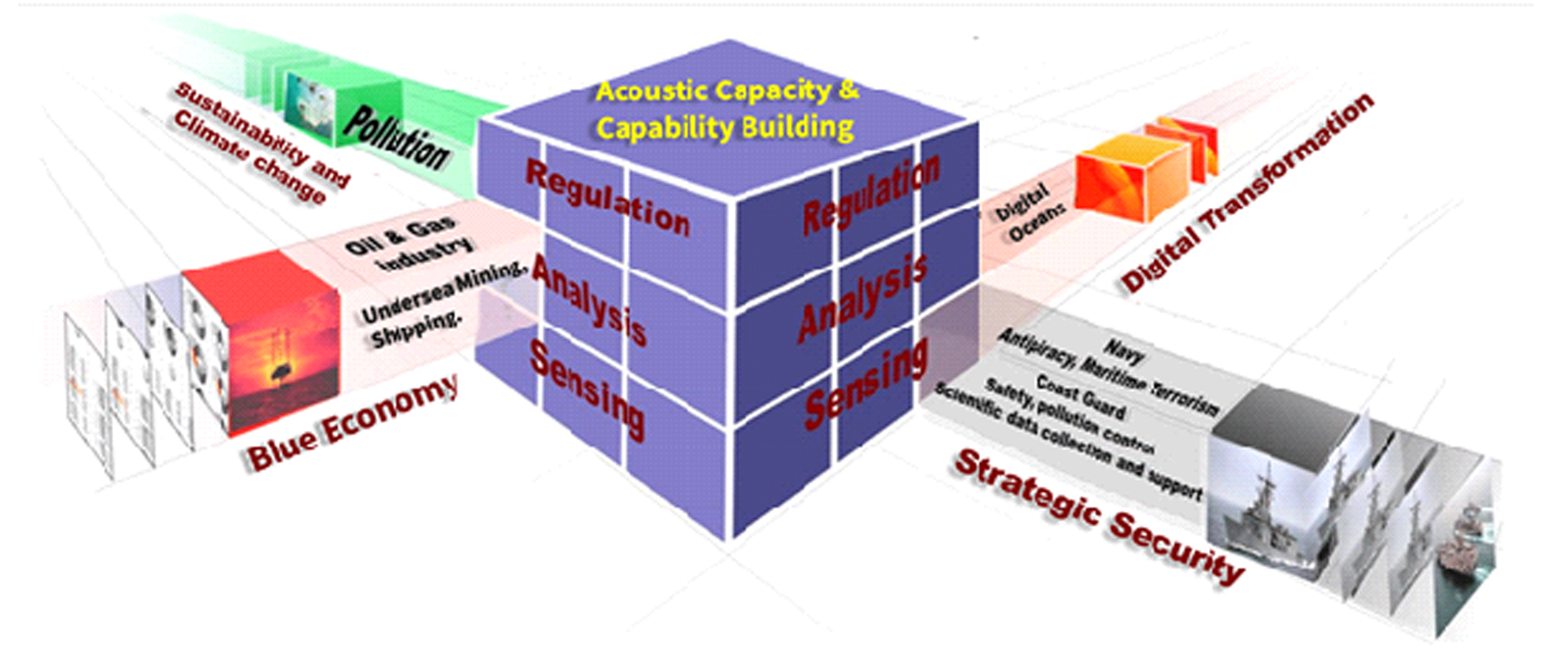The UDA framework aligns with the objectives of the IORA charter, which has undergone multiple revisions over the years to foster cooperation and capacity building among member states.
Pune
The G20 Summit in New Delhi recently brought world leaders together to reaffirm their commitment to partnerships and collaboration in managing a new global order. Under the Indian Presidency, the G20 focused on the theme of “One Earth, One Family, One Future,” addressing key topics such as food security, climate change, development, health, and digitization. The summit’s declaration highlighted two crucial aspects: the ocean economy and human-centric development. The inclusion of the African Union and the increased prominence of the Global South were encouraging developments, reflecting a more inclusive and balanced approach.
The strategic relevance of the Indo-Pacific region has gained global recognition, with nations and extra-regional powers increasingly maintaining strategic assets in the region.
However, it is important to note that the unique characteristics of the tropical waters in the Indian and Pacific Oceans cannot be effectively managed using outdated technologies developed during the Cold War era. The performance degradation in these tropical waters is significant—up to 60%. Addressing this degradation requires site-specific field experimental R&D and a shift towards digital transformation for enhanced governance and sustainable development. Effective underwater domain awareness (UDA) is crucial for managing the climate crisis and unlocking the vast potential of oceans and freshwater systems, while ensuring inclusive development and equitable distribution of resources.
The Indo part of the Indo-Pacific region, with its rich civilizational legacy and less contested Indian Ocean Region (IOR), has the opportunity to drive the new global order. India, in particular, can play a leadership role by leveraging its knowledge and expertise accumulated over 10,000 years. The Security And Growth for All in the Region (SAGAR) declaration by the Prime Minister of India articulates an ambitious vision, focusing on addressing security concerns, economic opportunities, reviving maritime heritage, and assuming a leadership role in the region.
The Indian Ocean Rim Association (IORA), an inter-governmental organization with 23 member states and 11 dialogue partners, aims to strengthen regional cooperation and sustainable development within the IOR. The upcoming 23rd Council of Ministers Meeting in Colombo will focus on strengthening regional architecture and reinforcing Indian Ocean identity. This meeting, hosted by the Government of Sri Lanka, will provide an opportunity for further collaboration and cooperation.
To effectively address the challenges and opportunities in the tropical waters of the Indo-Pacific, a structured UDA framework is required. The UDA framework brings together policy and technology interventions along with the acoustic capacity and capability building across the stakeholders including strategic security, blue economy, sustainability and climate change, and digital transformation. By pooling resources and synergizing efforts at national, regional, and global levels, the UDA framework can optimize infrastructure, know-how, field deployments, and human resources. The core of the UDA framework is acoustic capacity and capability building, which is critical for success.
Digital transformation, particularly in the underwater domain, can be a game-changer for the tropical region. Small island nations, grappling with economic survival in the post-pandemic era and sustainability challenges, can benefit greatly from the UDA framework. India, as a key partner in capacity and capability building, can provide valuable support in this regard.
Marine Spatial Planning (MSP) has become the de-facto governance tool for oceans and freshwater systems, recognized by the United Nations. MSP, which is a manifestation of digital transformation in the underwater domain, faces challenges in the tropical waters due to the limitations of outdated technologies. In contrast, the UDA framework encourages the use of modeling and simulation (M&S) using data from above-water sources, with sensor deployment limited to field validation in specific locations. This approach significantly enhances the efficiency and precision of MSP, offering near-exact inputs in all conditions. The UDA framework-driven digital transformation can be customized to address the socio-economic, socio-cultural, and socio-political realities in the IORA.
The UDA framework aligns with the objectives of the IORA charter, which has undergone multiple revisions over the years to foster cooperation and capacity building among member states. By offering a comprehensive and inclusive approach, the UDA framework can effectively address the requirements of the IORA in a structured manner.
The IORA’s 2nd Action Plan for 2022-2027, with its various verticals, can be complemented by the UDA framework. The UDA framework’s impact can be seen in the areas of maritime safety and security, fisheries management, disaster risk management, academic, scientific and technological cooperation, blue economy, and institutional arrangements and broadening engagements. Enhancing real-time monitoring, promoting sustainable fisheries, strengthening disaster risk management, fostering academic collaboration, optimizing the blue economy, and streamlining institutional arrangements are key benefits of the UDA framework.
To further support the implementation of the UDA framework, the IORA could establish a Centre of Excellence (CoE) comprising research, academia, skilling, innovation, and policy sub-centers. India, with its abundant talent pool and expertise in digital transformation, could play a key role in supporting such an initiative. The CoE could serve as a nodal institution for developing MSP applications, cater to all stakeholders, and ensure data security with modern AI-based data analytics tools.
In conclusion, unlocking the potential of the Indo-Pacific requires a comprehensive approach that embraces collaboration, digital transformation, and sustainable development. The UDA framework offers a structured pathway towards achieving these goals, with the potential to transform the region and empower its stakeholders. By leveraging the knowledge and expertise of the IORA member states and dialogue partners, a brighter and more inclusive future can be achieved in the Indo-Pacific.
Dr (Cdr) Arnab Das is Founder & Director, Maritime Research Center, Pune

